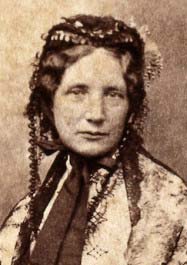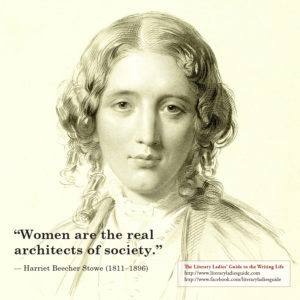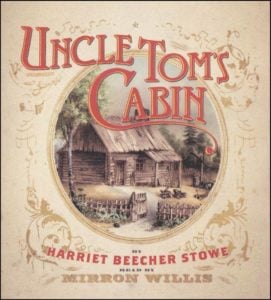Feminist Quotes by Harriet Beecher Stowe
By Nava Atlas | On January 8, 2017 | Updated September 30, 2022 | Comments (1)

Harriet Beecher Stowe (1811 – 1896), abolitionist, author, and humanitarian, used her pen as a catalyst for change. She was also an advocate for women’s rights. Here is a selection of feminist quotes by Harriet Beecher Stowe, a woman ahead of her time.
Stowe is best known for Uncle Tom’s Cabin, which was the second best-selling book of the 19th century (just after the Bible), and the first international bestseller from any author, male or female. There’s little dispute that the book created a major shift in public perception of slavery.
She was also concerned with the status of women, and used both her fiction and nonfiction writing to impart messages about their strength, intelligence, and worth.
. . . . . . . . . . .
“… We understand our own institutions and position, and learn that, instead of following the corrupt and worn-out ways of the Old World, we are called on to set the example of a new state of society — noble, simple, pure, and religious; and women can do more towards this even than men, for women are the real architects of society.” (Household Papers and Stories, 1896)
. . . . . . . . . . .
“All places where women are excluded tend downward to barbarism; but the moment she is introduced, there come in with her courtesy, cleanliness, sobriety, and order. When a man can walk up to the ballot-box with his wife or sister on his arm, the voting places will be far more agreeable than now …” (Household Papers and Stories, 1896)
. . . . . . . . . . .
Perceptive and Personal Quotes by Harriet Beecher Stowe
. . . . . . . . . . .
“Whatever offices of life are performed by women of culture and refinement are thenceforth elevated; they cease to be mere servile toils, and become expressions of the ideas of superior beings.” (Household Papers and Stories, 1896)
. . . . . . . . . . .
“I wrote what I did because as a woman, as a mother I was oppressed and broken-hearted, with the sorrows and injustice I saw, because as a Christian I felt the dishonor to Christianity — because as a lover of my country I trembled at the coming of wrath. It is no merit in the sorrowful that they weep, or to the oppressed and smothering that they gasp and struggle, not to me, that I must speak for the oppressed — who cannot speak for themselves.” (from a letter, 20 January, 1853)
. . . . . . . . . . .
How Harriet Beecher Stowe Came to Write Uncle Tom’s Cabin
. . . . . . . . . . .
“So much has been said and sung of beautiful young girls, why doesn’t somebody wake up to the beauty of old women?” (Uncle Tom’s Cabin, Or Life Among the Lowly, 1852)
. . . . . . . . . . .
“In the old times, women did not get their lives written, though I don’t doubt many of them were much better worth writing than the men’s.” (The Pearl of Orr’s Island, 1862)
. . . . . . . . . . .
“Up to this year, I have always felt that I had no particular call to meddle with this subject, and I dreaded to expose even my own mind to the full force of its exciting power. But I feel now that the time is come when even a woman or a child who can speak a word for freedom and humanity is bound to speak … I hope every woman who can write will not be silent.” (from a letter to the editor of The National Era, March 9, 1851)
. . . . . . . . . . .
“Miss Minerva Randall was one of those female persons who are of Sojourner Truth’s opinion — that if women want any rights they had better take them, and say nothing about it. Her sex had never occurred to her as a reason for doing or not doing anything which her hand found to do.” (Oldtown Folks, 1869)


An enlightening related article I recently read was on the man behind the “Uncle Tom’s Cabin” character of Harriet Beecher Stowe: Josiah Henson. Please check this out on Christianity Today: https://www.christianitytoday.com/history/2019/june/josiah-henson-uncle-tom-slavery-underground-railroad-faith.html.